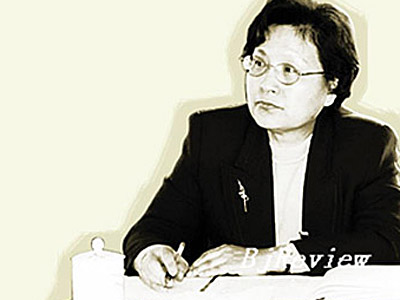
China has recently ramped up its anti-corruption efforts by establishing the National Corruption Prevention Bureau (NCPB). Appointed to lead the bureau, which falls under the Chinese Central Government, is newly appointed Minister of Supervision, 59-year-old Ma Wen, the State Council announced on September 6.
Before she joined the cabinet's lineup this August, Ma had been engaged in internal supervision of the Communist Party of China for almost 20 years. In January 2004, she was elected vice secretary of the Party's Central Commission for Discipline Inspection (CCDI), the top discipline watchdog.
Ma's new agency will center on improving China's anti-corruption mechanisms and devising related regulations, rather than investigating corruption cases. This strategy conforms to a shift in the government's anti-corruption efforts, according to experts. The State Council's announcement, however, was not specific in more detail on how NCPB would operate or how much authority it had to displine corrupt officials.
China's policies to prevent corruption traditionally focused on moral education of government and Party officials, but in recent years a series of rules and regulations were issued to deal with systemic loopholes, covering administrative approvals, financial management, official promotion and the penalty for corrupt officials.
The establishment of NCPB is also a result of the United Nations Convention Against Corruption to be effective in two years. China acceded to the treaty in December 2003, which says in its Article 6, "Each State Party shall, in accordance with the fundamental principles of its legal system, ensure the existence of a body or bodies, as appropriate, that prevent corruption." It is also stipulated that the body or bodies should be granted the necessary independence and provided with the necessary material resources and specialized staff.
According to CCDI, 97,260 officials were disciplined in 2006, more than 80 percent of whom had failed to carry out duties, taken bribes or violated the Party's financial rules. |
